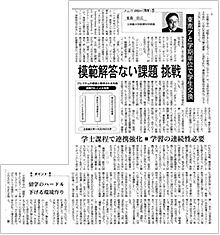Program Outline
Concept
- How the program is connected to international education at Ritsumeikan University
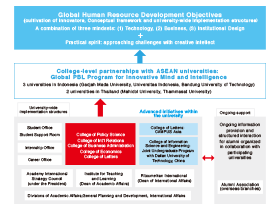
- Program objectives and human resource development goals
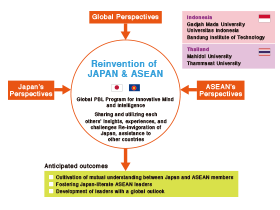
- Teaching and learning structures
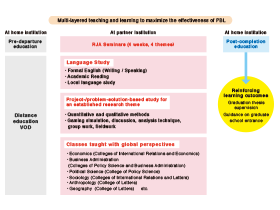
- Internationalization of experience in partnerships with industry and government
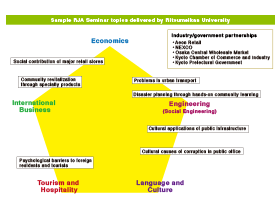
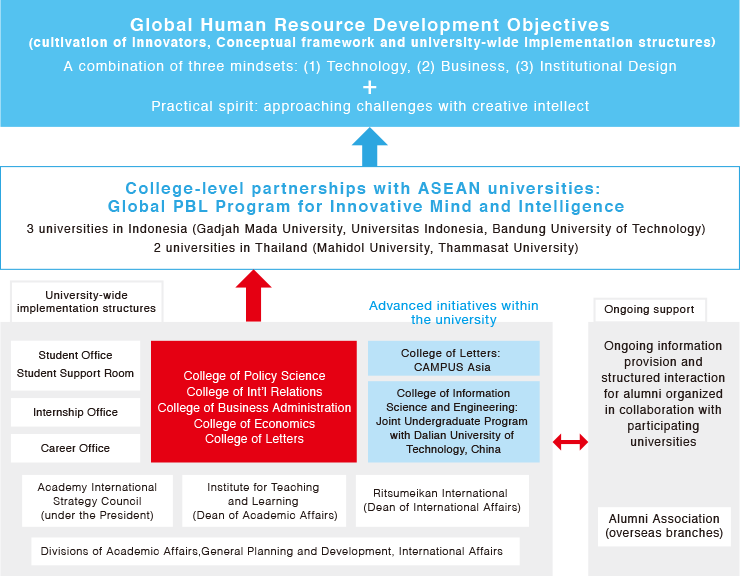
Ritsumeikan pursued many initiatives to internationalize its educational curricula. These include the Global 30 Programs in which students can study entirely in an English language medium (Colleges of Policy Science and International Relations), Campus Asia of which participants study progressively across three university campuses in Japan, China and Korea (College of Letters), and the joint school run by the College of Information Science and Engineering in collaboration with Dalian University of Technology.
The Global PBL Program for Innovative Mind and Intelligence builds on the successes of these initiatives, fostering globally-active innovators through a program that enables students to manage projects and produce outputs independently.
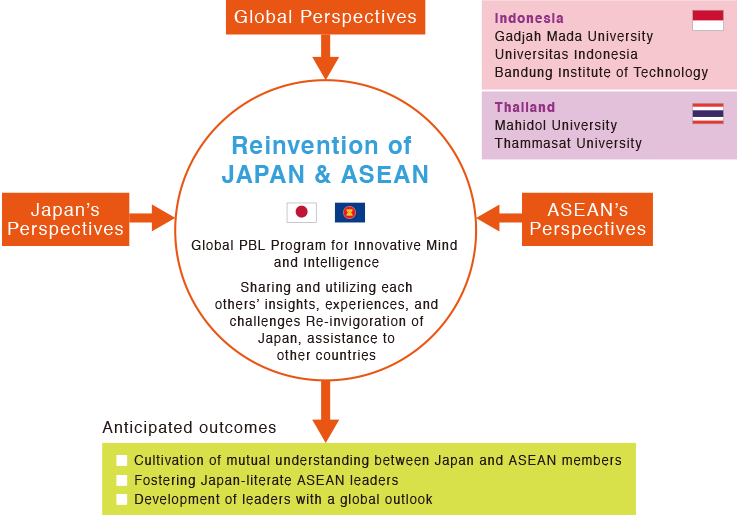
Today’s world needs people who can solve problems. These people must be equipped with a combination of mindsets.
In general terms, solving policy challenges and social problems requires thinking across three different areas: (1) technology, (2) business, and (3) institutional design. Needless to say, there is no model for infrastructure exporting and international software mobilization today. Therefore, it is important to develop personnel who has creative intellect and capacity to discover new models stemming from good multi-dimensional thinking toward the future.
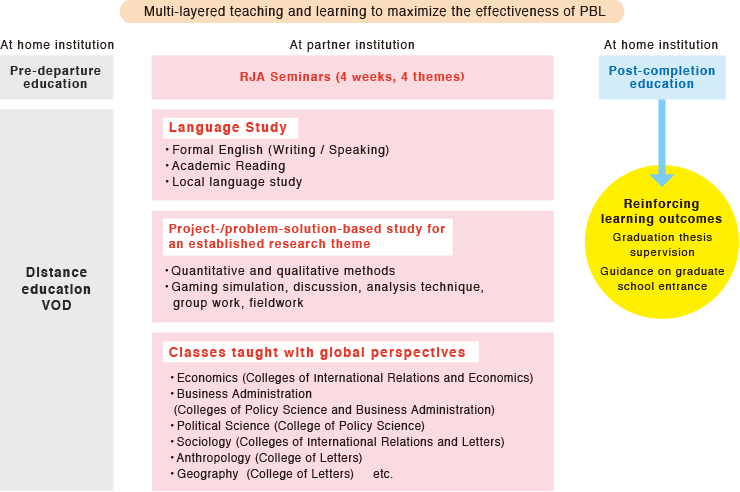
These courses will be delivered not only in the form of lectures offered at Ritsumeikan and partner university campuses, but also Video-on-Demand lectures and teleconference lectures provided by each university. Furthermore, students will be encouraged to develop a deeper understanding of lecture content through active discussions in small-group seminar classes.
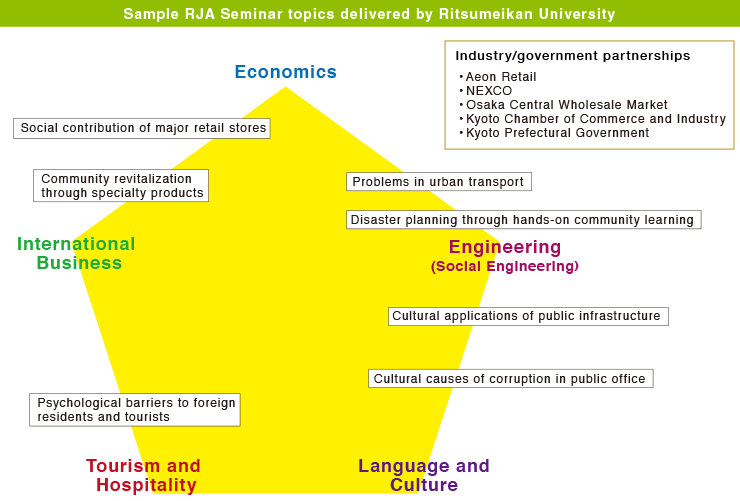
All the seminar topics in this Program are closely connected to policy issues and social problems shared across Japan and ASEAN member nations. The seminars have several distinctive features: (1) instruction in practicum-style classes including off-campus research; (2) interdisciplinary and problem-oriented instruction; (3) interaction with other students in the program and students in RU’s Global 30 (English-medium) Programs.
There are five core fields in this program: economics, engineering, language and culture, tourism and hospitality, and international business. Multiple topics are offered in each of these fields. Students are free to formulate their own programs of research in line with their interests and future plans.
